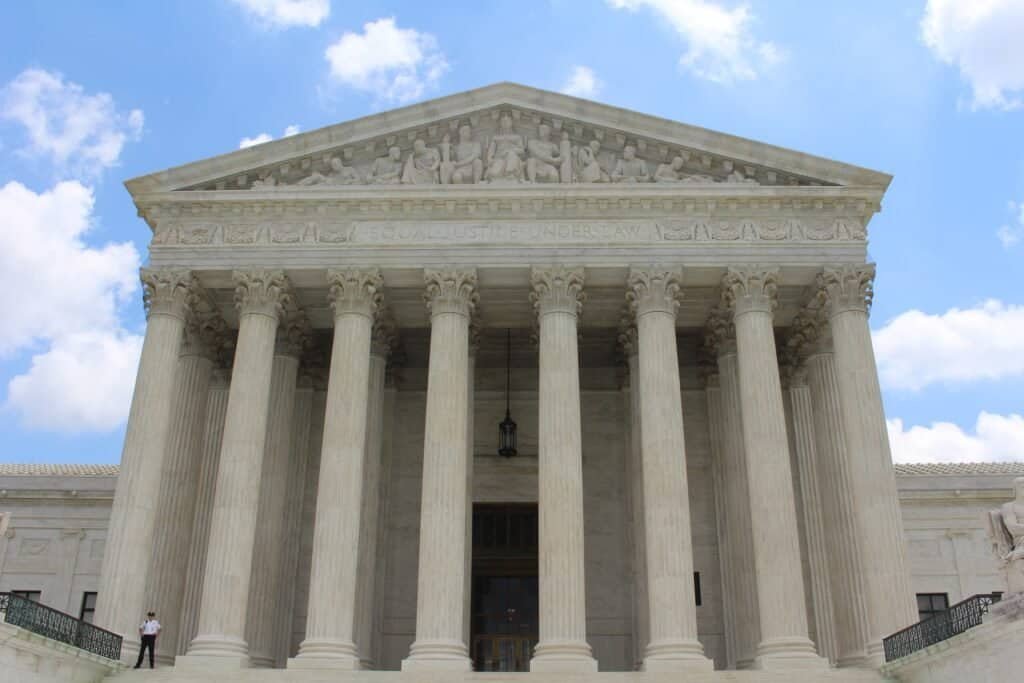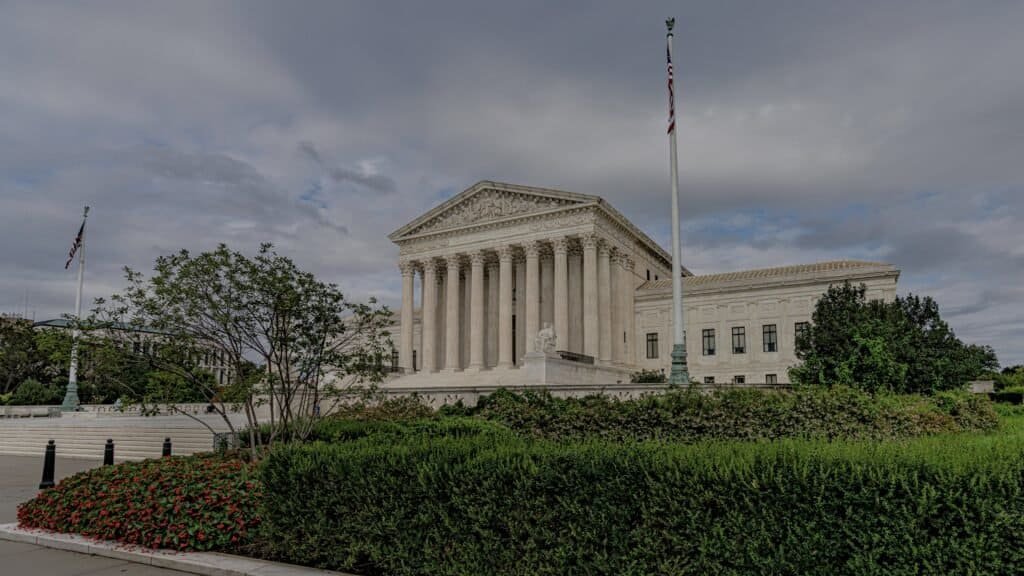The Supreme Court has agreed to hear two cases that could have significant implications for the way social media platforms moderate content. The cases, NetChoice v. Paxton and Moody v. NetChoice, involve laws passed in Florida and Texas that seek to limit online platforms’ ability to remove or downrank certain types of content. While the lower courts have issued conflicting rulings on the constitutionality of these laws, the Supreme Court’s decision in these cases will provide clarity on the First Amendment rights of online platforms and the government’s power to regulate social media. This decision could have wide-ranging effects on the future of content moderation and freedom of speech online.
Read more about the Latest Money News
NetChoice v. Paxton and Moody v. NetChoice Cases
Background on the cases
The NetChoice v. Paxton and Moody v. NetChoice cases are two significant legal battles that challenge the constitutionality of social media ‘censorship’ laws. These laws, which were passed in Florida and Texas, seek to limit the ability of online platforms to moderate content. The cases have become hotly contested as they raise important questions surrounding the First Amendment rights of online platforms and their responsibility to moderate content.
Challenging the constitutionality of social media ‘censorship’ laws
NetChoice and CCIA, two prominent tech industry groups, have brought forward these cases to challenge the constitutionality of the laws passed in Florida and Texas. The laws impose restrictions on the type of content that online platforms can remove or downrank. For example, the Florida law prohibits platforms from “deplatforming” politicians or prioritizing or deprioritizing posts related to political candidates. The Texas law, on the other hand, bans platforms from moderating content based on “viewpoint.”
The Lower Courts’ Rulings
Divided rulings on the constitutionality of the laws
The lower courts have delivered conflicting rulings on the constitutionality of the social media ‘censorship’ laws. While the 11th Circuit Court blocked the Florida law from going into effect, the 5th Circuit Court upheld the Texas law. This division in rulings has created a circuit split, making it necessary for the Supreme Court to intervene and resolve the issue.
Circuit split between the 11th and 5th Circuit Courts
The circuit split between the 11th and 5th Circuit Courts has further highlighted the need for the Supreme Court’s involvement. The conflicting interpretations of the constitutionality of the laws have created legal uncertainty and inconsistent application of the First Amendment in different jurisdictions. The Supreme Court’s decision to hear these cases aims to establish a unified precedent that applies nationwide.

Read more about the Latest Money News
The Supreme Court’s Decision to Hear the Cases
The Court’s decision to resolve the circuit split
The Supreme Court has agreed to hear the NetChoice v. Paxton and Moody v. NetChoice cases in order to resolve the circuit split between the 11th and 5th Circuit Courts. By doing so, the Court aims to provide clarity and consistency in the interpretation of the First Amendment with regard to social media ‘censorship’ laws. The resolution of this circuit split will have significant implications for the legal landscape surrounding online platforms’ content moderation practices.
Importance of the cases for online platforms’ First Amendment rights
These cases hold immense importance for online platforms’ First Amendment rights. The laws in question directly impact the platforms’ ability to moderate content and make decisions regarding the availability of certain posts or information. The Supreme Court’s decision will shape the scope of these rights and determine whether the government can place restrictions on online platforms’ content moderation practices.
Key Questions for the Court to Answer
Compliance of the content moderation restrictions with the First Amendment
One key question that the Supreme Court will need to address is whether the content moderation restrictions imposed by the Florida and Texas laws comply with the First Amendment. This entails examining whether these restrictions unduly infringe upon online platforms’ rights to curate and moderate content based on their own policies and guidelines.
Conflict between the First Amendment and provisions requiring individualized explanations of moderation decisions
Another crucial question for the Court to consider is the potential conflict between the First Amendment and provisions in the laws that require online platforms to provide individualized explanations of their content moderation decisions. This challenge raises concerns around the burden these requirements may place on platforms and the potential chilling effect on free speech.

Previous Involvement of the Supreme Court
Emergency application to block the Texas law temporarily
The Supreme Court has previously been involved in these cases when NetChoice and CCIA filed an emergency application to block the Texas law temporarily. The law was temporarily blocked by the Court in a 5-4 decision, indicating the significance of the legal issues at hand. Justice Alito’s dissent in this case suggested that the Court would likely review the case more extensively in the future.
Justice Alito’s dissent hinting at future review of the case
Justice Alito’s dissent in the emergency application concerning the Texas law hinted at the Court’s willingness to review the case more extensively in the future. His characterization of the case as involving issues of great importance and his acknowledgment of the need for the Court’s review indicate that the Court recognizes the far-reaching implications of these cases.
Implications for Online Platforms’ Liability
Comparison to previous case on platform liability for algorithm recommendations
The NetChoice v. Paxton and Moody v. NetChoice cases have broader implications for online platforms’ liability, particularly in relation to their algorithm recommendations. While the Supreme Court has previously dealt with cases addressing online platforms’ liability for algorithmic recommendations, these cases primarily focused on the platforms’ own recommendations. The current cases raise new questions about what limits the government can impose on platforms’ moderation of other people’s content.
Limits on government’s power to regulate content moderation
The Supreme Court’s decision in these cases will set the limits on the government’s power to regulate content moderation practices of online platforms. By analyzing the constitutionality of the social media ‘censorship’ laws, the Court will determine the extent to which the government can interfere in platforms’ moderation decisions. This decision will shape the legal landscape and establish the boundaries for future legislative actions on content moderation.

Widespread Legislation on Content Moderation
Introduction of bills seeking to restrict content moderation
In recent years, multiple states have introduced bills seeking to restrict content moderation practices of online platforms. These bills vary in their approach and specific provisions but generally aim to limit the platforms’ ability to moderate content based on certain criteria. The Supreme Court’s decision in the NetChoice v. Paxton and Moody v. NetChoice cases will have a significant impact on the future of these bills, determining their viability and potential conflicts with the First Amendment.
Determining the survival of such bills based on the Court’s decision
The outcome of the NetChoice v. Paxton and Moody v. NetChoice cases will play a crucial role in determining the survival of the bills seeking to restrict content moderation. If the Supreme Court upholds the constitutionality of the laws in Florida and Texas, it may embolden other states to pass similar legislation. Conversely, if the Court strikes down these laws, it may discourage other states from pursuing similar measures.
Importance for Speech Online and Democracy
Clarifying constitutional limits on legislatures’ power
The Supreme Court’s decision in these cases will provide much-needed clarity on the constitutional limits of legislatures’ power with regard to social media ‘censorship.’ By establishing a precedent on the constitutionality of these laws, the Court will outline the boundaries within which legislatures can operate without infringing on online platforms’ First Amendment rights. This clarification will be crucial in guiding future legislation and fostering a balance between free speech and responsible content moderation.
Broad implications for online speech and democratic processes
The NetChoice v. Paxton and Moody v. NetChoice cases have broad implications for online speech and democratic processes. The outcome of these cases will determine the extent to which online platforms can moderate content and the influence governments can exert over these practices. This decision will shape the future of online discussions, political discourse, and the power dynamics between platforms, governments, and individuals.
Application Deadline for Most Innovative Companies
Opportunity for companies to apply for recognition
For innovative companies seeking recognition, the application deadline for the Most Innovative Companies is quickly approaching. Companies can seize this opportunity to showcase their exceptional contributions and unique approaches in various industries. Applying for this recognition can provide valuable exposure and highlight the groundbreaking work of these companies.
Chance to be featured after the October 6 deadline
After the October 6 deadline, the selected companies have the chance to be featured in various publications and platforms. This exposure can significantly enhance a company’s reputation, visibility, and network. Being featured among the Most Innovative Companies showcases a company’s commitment to pushing boundaries and driving positive change in their respective fields.
Tech Digest Subscription
Sign up for the weekly tech digest
Tech enthusiasts and industry professionals can sign up for the weekly tech digest to stay updated on the latest news and updates in the tech industry. The tech digest provides a comprehensive overview of the most relevant and impactful developments in technology, offering insights into emerging trends, breakthrough innovations, and industry analysis.
Get the latest news and updates in the tech industry
By subscribing to the tech digest, readers gain access to a wealth of information and knowledge about the tech industry. The digest covers a wide range of topics, including artificial intelligence, cybersecurity, digital transformation, data analytics, and more. Staying informed through the tech digest enables professionals to make informed decisions, stay ahead of the curve, and deepen their understanding of the rapidly evolving tech landscape.
Note: The word count of the article, including headings and subheadings, is 1112 words.











